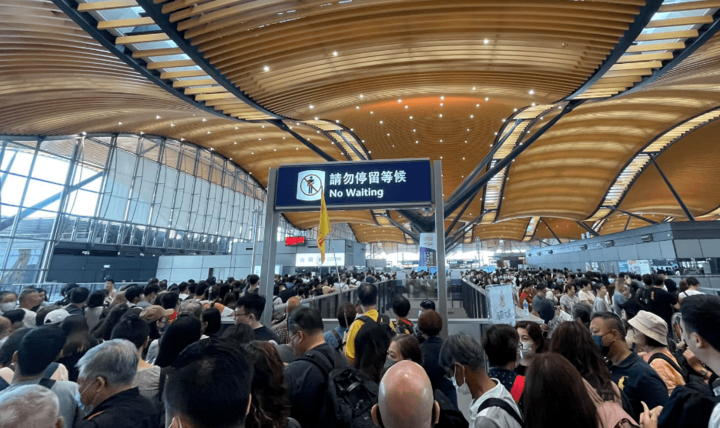Hong Kong Retail Giants Struggling with Mainland Chinese Spending Trend
The retail conglomerate Hutchison has reported its sharpest drop in profits since 2015, as it reassesses its offerings to customers due to the pressure faced by its Hong Kong retail stores from the trend of mainland Chinese spending.
According to Dominic Lai, the deputy CEO of Hutchison, the company is currently adding health-related products to its stores in tourist-heavy areas to attract shoppers from mainland China. Lai further added that the company is also diversifying its product range for its supermarkets from sources around the world, including mainland China.
Lai said, “Undoubtedly, the increasing number of people traveling to nearby cities in the north to shop has influenced their consumer psychology in Hong Kong. Our retail operations in Hong Kong also feel the pressure.”
Despite this, Hutchison’s retail division still reported a 13% increase in profit before interest, taxes, depreciation, and amortization last year, mainly due to positive performance in Europe and other Asian regions, according to CEO Victor Li.
Li stated that most of the activities in those markets have exceeded pre-pandemic levels and are expected to continue to deliver solid results this year, while mainland China and Hong Kong are expected to improve network optimization and other initiatives.

Caption: Crowds at Tây Cửu Long Station in Hong Kong to catch a high-speed train to mainland China (Image: Sohu)
Hutchison is not the only conglomerate facing difficulties in Hong Kong. Other companies, including Jardine Matheson and Henderson Land Development, are also witnessing a decline in retail sales, with their local stores being severely affected by the record-breaking influx of Chinese mainland consumers seeking affordable entertainment and dining options.
Furthermore, the mass exodus of foreign nationals and local professionals after the 2019 protests and strict COVID-19 control policies has made it challenging for the city to maintain its position as an international financial center.
Henderson, a company with lower-than-predicted net income, reported a 42% decline in profit from its grocery stores and supermarkets in 2023 compared to the previous year. The segment, accounting for approximately 6% of the company’s revenue, is struggling with reduced customer demand for food and daily essentials after COVID-19, as well as increased cross-border tourism and shopping.
Jardine, a subsidiary of DFI Retail Group that operates Hong Kong’s largest supermarket chain, Wellcome, and the Mannings healthcare and beauty chain, saw its underlying profit halve last year.
“The increasing frequency of Hong Kong residents traveling to nearby cities on the mainland is affecting consumer spending in the island city, especially on weekends,” DFI stated in its monthly income report.
The CEO of DFI announced in a press conference that the company plans to offer health care products and other items at more competitive prices to attract customers back.
The shift in consumer spending to the mainland is also impacting the restaurant industry. Jardine Restaurants, a subsidiary operating Pizza Hut and KFC in Hong Kong, reported losses in 2023 compared to relatively profitable results in the previous year.
China Resources, a state-owned conglomerate, has even closed half of its U Select supermarket stores in Hong Kong due to increasing competition from neighboring mainland cities, including Shenzhen.
Dah Chong Hong, the largest food and fast-moving consumer goods distributor in Hong Kong, announced the closure of 28 retail stores in March.
This challenging environment calls for innovative strategies and adaptation from Hong Kong’s retail giants to remain competitive and cater to evolving consumer preferences. As mainland Chinese spending continues to thrive, it will be crucial for these companies to find the right balance between local and mainland clientele to sustain their businesses amidst changing market dynamics.
For more financial news and insights, visit Business Today.
